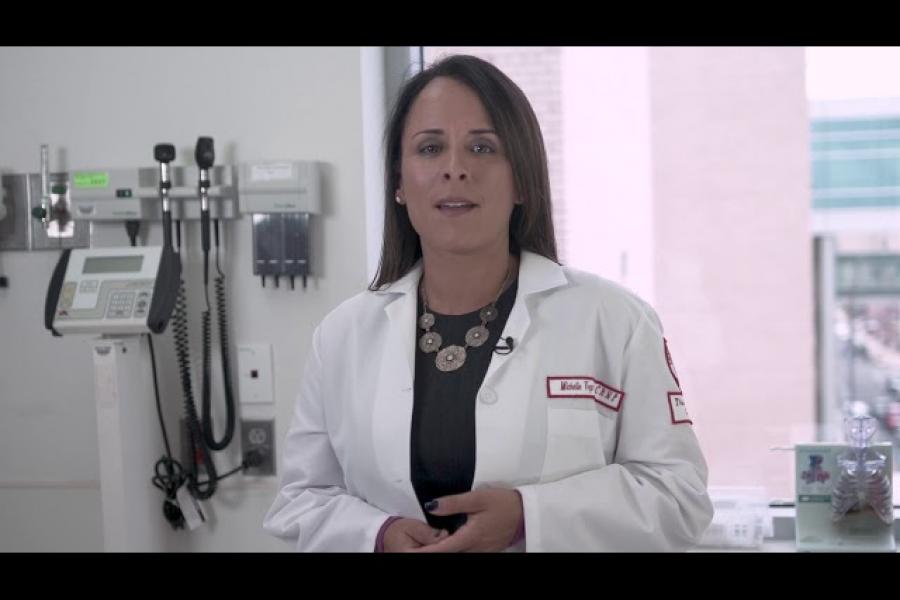Q&A with a Registered Dietitian
View All Blog PostsMy name is Kirsten Diegel, and I am a Registered Dietitian at Temple Hospital that works primarily with pulmonary patients.
A healthy diet, meaning one that includes adequate protein, vegetables, fruit, and whole grains to meet all of your needs without consuming too many calories, is important for someone with a lung condition just like it is important for everyone. For those with lung diseases that make them short of breath, being overweight or obese can make shortness of breath worse. A healthy diet and weight can help maintain muscle, which can help patients stay independent for a longer period of time.
There are not specific foods that may be more beneficial to patients with lung conditions; however, some pulmonary patients may find it easier to get adequate nutrition and be less short of breath with smaller, more frequent meals throughout the day. This can also help combat some of the overeating that may occur while on steroids that can lead to weight gain.
Oftentimes patients suffering with pulmonary disease are looking to lose weight but feel unable to, due to their steroid use and inability to exercise. For these patients, I recommend that they try to combat the effects of the steroids by eating more foods that contain protein, such as greek yogurt, hard-boiled eggs, nuts and plenty of lean meats. I also recommend foods that have fiber and are lower in calories,like baby carrots, celery, and fresh fruit as well as cutting out ALL beverages that contain calories, including juices and soda. I highly encourage patients to enroll in pulmonary rehabilitation; it allows them to exercise in an environment where someone is there to encourage them and to also make sure they are getting adequate oxygen. Pulmonary rehabilitation staff can also provide exercises that can be done at home.
Here are some tips I give my patients to improve their diet:
- Make sure you are eating fruits and vegetables throughout the day.
- Eliminate all drinks with calories, unless you need to gain weight.
- Reduce how much salt you consume on a daily basis – remember foods that are not salty tasting may still have a lot of salt, such as pastries.
- Always read the labels of food to look for serving size/number of servings in a container, you might be eating 2 ½ times the amount of calories, fat, salt, and carbs that you thought you were.
- Lastly, do not get caught up in the nutrition recommendations you hear on TV. Use nutrition professionals as your resources for any questions you have and remember that if it sounds too good to be true, it probably is.
The most common obstacles lung patients face in relation to nutrition are successfully losing weight while on steroids and trying to gain weight as their disease progresses. This is why maintaining good eating habits and a healthy weight is important to have before ever getting sick. Sometimes patients are not lucky enough to do this prior to getting sick, for these individuals I highly recommend that they seek help from a registered dietitian as soon as possible. Patients should also always listen to their physician's recommendations and be proactive about their health.
I try to keep my patients motivated by helping them take their larger goals, for example losing weight, and breaking them down into smaller, more achievable goals that they can reach in a specific amount of time. This way, as they achieve the smaller goals they are motivated to complete the next smaller goal and eventually will reach their overall, larger goal.

Kirsten Diegel, RD, LDN
Kirsten Diegel, RD, LDN, is a Registered Dietitian at Temple University Hospital who works primarily with pulmonary patients.